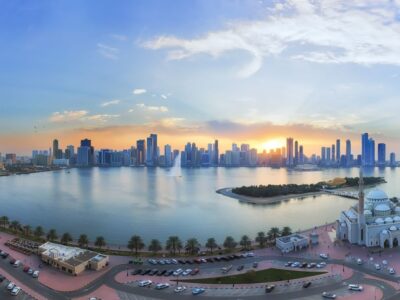If country music legend Dolly Parton was to release her hit song from 1980 in the soon-to-be post-pandemic world, then according to Nidal Abou-Ltaif, president of Avaya International, she may have to think again in regard to the title.
That’s because he believes ‘working nine-to-five’ simply does not and will not exist.
Abou-Ltaif told Arabian Business: “There are two types of people in work; there are task-oriented people who work on tasks and it doesn’t matter what time they start and when they finish, and there are people who think that working is from nine-to-five.
“I don’t believe the work of nine-to-five will exist anymore; it will be more task-oriented, it will be more productivity-oriented through tools or through communication.”
While suits gave way to slacks and the dining room table became, in many cases, the working desk, according to data collected by Avaya in its survey ‘Life and Work beyond 2020’, 46 percent of respondents reported an increase in productivity because they were happier.
And while working-from-home was thrust upon businesses and employees as the world guarded against the spread of coronavirus. With the rapid roll-out of vaccinations, not only is this likely to continue, according to Abou-Ltaif, but he believes the latest technology available will see an increasing amount of people choose to ‘work-from-anywhere’.
“We are going, for sure, with hybrid. Nothing will be 100 percent from home or 100 percent from the office. We’re going for hybrid and it’s not working from home, it’s more working from anywhere, that’s the direction.”
When asked what worries them most about the way they will work in the future, over half of UAE and Saudi Arabia respondents to Avaya’s survey said that it was returning full-time to work in the office. However, around 40% of respondents from each country were also against having to work from home forever. Moreover, 60% of respondents in Saudi Arabia, and 51% in the UAE, said they’ve felt happier working from home. And across the Middle Eastern countries surveyed, Millennials were the most in-favour of work-from-anywhere arrangements.
The UAE appears to be a prime location for the hybrid working experiment; it was ranked first in the Arab world and 31st in the world in the remote working index issued by the UK-based Circle Loop, surpassing Italy, Japan, Hong Kong, Ireland, Malaysia, Russia, the US and China, while the country ranked second among best countries for the speed and efficiency of internet connections.
According to the latest research report from real estate giants Savills, the demand for office real estate in Dubai remained polarised last year. Multinationals were able to negotiate better lease terms with their landlords and a few companies relocated and downsized to cut costs.
However, a uniform trend that was observed across all companies was the evaluation of their medium-to-long-term office space requirements in the wake of increased flexi-working, including the extended work from home arrangement.
Abou-Ltaif said: “The open office space where we have 100 people in one office, I think that will not exist.”
But only 56 percent of those surveyed by Avaya said their employer had given them the necessary tools and technology to do their job.
“The work from home or the virtual office has been there, but it was not open for everybody and there were rules and regulations. But when the pandemic started, all of a sudden we found ourselves where everybody had to work from home,” said Abou-Ltaif.
“I think the first difficulties people faced was that they were not prepared, they were not ready. Many people did not have the location at home, they did not have the means, in some countries they did not have the technology or the rules to allow them to work from home.”
This is where tech companies, such as Avaya, stepped up to the mark.
Avaya helped Raya Contact Center, a leading business process outsourcing service provider in the Middle East and North Africa region, enable its entire call center workforce to work remotely. In Saudi Arabia, King Abdullah Medical City used Avaya Spaces to establish an always-on, specialised workflow-based steering committee made up of medical and administrative experts, to coordinate Covid-19 responses across teams working from different locations, to slow the spread of the virus.
Gulf Bank Kuwait turned to Avaya to not only meet the digital demands of its customer base, but also to create a more flexible working environment for contact center staff now empowered to work from anywhere. That transformation journey began when Avaya supported Gulf Bank at the height of the Covid-19 pandemic by providing remote agent licenses.
Abou-Ltaif said: “The technology, from Avaya and others, has proved that people can do it from home, they can do it from anywhere and, for sure, there were concerns we had to address as we progressed – security, privacy, ease-of-use and adapting between systems. I think we all, as technology companies, have jumped to try to make it easier to use and communicate.”







